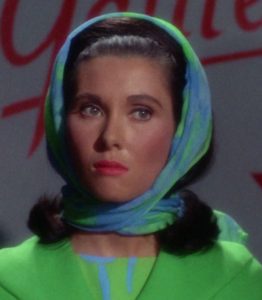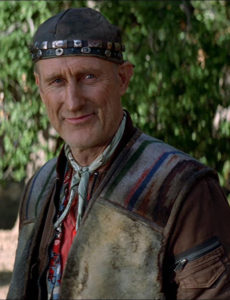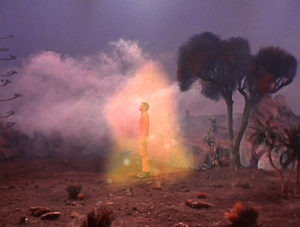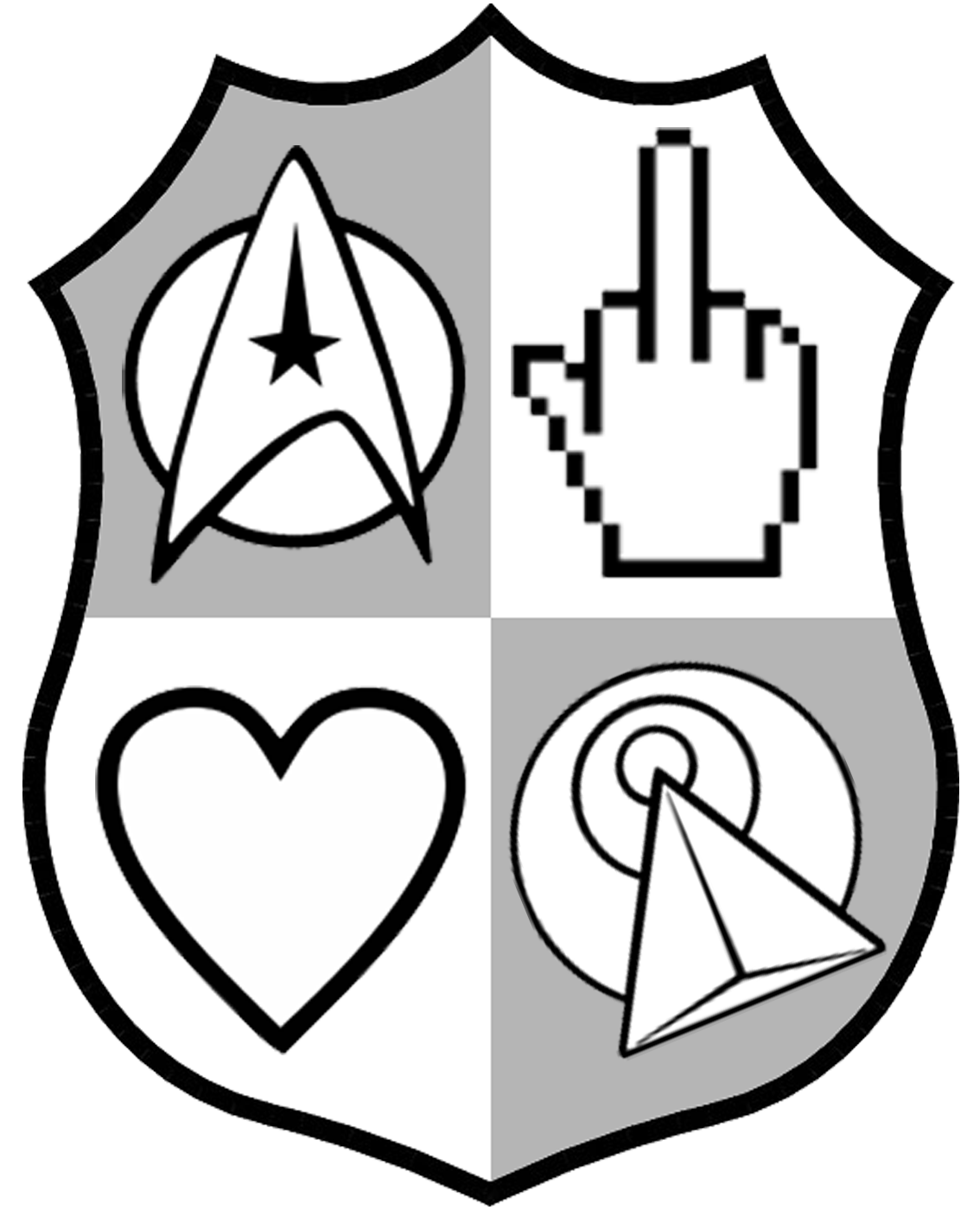Ari
July 6, 2016
Episode 38 – TOS 2×09: “Metamorphosis”
Ah, Original Series: bastion of mystifying false dichotomies. Where you get Conspicuous Progressivism, you also get Astonishing Obliviousness Towards the Status Quo. For instance, this week’s episode contains both a scene where the Starfleet contingent of the cast are utterly nonplussed by the guest-star’s thinly-veiled-gay-panic-analog AND the message, shouted repeatedly through a narrative megaphone, that a woman’s life is meaningless without the love of a man.
That’s right, ladies: you’ve been wasting your lives.

We open on a shuttle containing far too many members of the senior staff and one guest-star in the person of a Federation diplomat; she’s had to leave her Incredibly Important Negotiations to be rushed back to the Enterprise to receive medical treatment. But on the way, the shuttle Galileo (yes, that Galileo) is set upon by a malicious Glow Cloud and forced to land on Yet Another Shitty Planet, where they discover a man who claims to be Zefram Cochrane, who, uh, has officially been dead for over 150 years.
Now, if you’re passingly familiar with Trek canon, you might know that Zefram Cochrane is the dude who invented warp drive on Earth, a discovery that led directly to Earth’s First Contact with Vulcan and eventually, the formation of the United Federation of Planets. Kind of a big deal. Though the last time anybody saw him, he looked less like the square-jawed, corn-fed farmboy we meet in the episode and more like this:

We quickly discover that Old Zefram Cochrane, who disappeared and was presumed dead in space at age 87, crash-landed on Shitty Planet and was rescued by the Glow Cloud, who restored him to a hale and hearty 35, supposedly because it (“she,” according to some deeply uncomfortable side-dialogue about the universality of the gender binary as a negligent excuse to give the Universal Translator a feminine voice, no I’m not still mad about that for like sixteen different reasons, why do you ask) loves him. Given that he set out into space with the intention of dying there, you’d think he’d be more pissed about the save, but… no.

Candidly: the romantic love we’re told exists between Cochrane and the being he calls the Companion is pretty ham-handed and awkward and Heavy 1960s We-Have-No-Other-Vocab-For-This-Heteronormative, and we had a real problem with a lot of it. We also have a real problem with the way that poor, hyper-competent Assistant Commissioner Elinor Donahue, the episode’s putative female guest star, has barely any lines and virtually no agency, being present in the episode only to fall ill, hover on the ticking-clock brink of death, and then be forced into a body-sharing symbiosis with the Companion, which dooms whatever remains of Elinor to living out her life on Shitty Planet with a dude who swears he loves her/them/it even though he was having a xenophobic freakout over the idea roughly fifteen minutes ago but apparently has no problem with it now that she’s in the body of a conventionally-attractive human woman (who btw had literally no say in the matter).
This happens a lot in original Trek: mostly you can see the good intentions, but also a glaring lack of the the… vocabulary? discourse? sensitivity? to pull it off. Metamorphosis is another episode that, with a few tweaks here and there, could have been a genuinely interesting and touching treatise on the universality of love, but as it stood, mostly it just pissed us off.
The good news is – let’s end on a high note – is that this is, indeed, is a question that is explored repeatedly within the Trek Universe: What is love? Are some kinds of love more valid or precious than others? Just how different can two sentient beings be, before their differences make meaningful love impossible? For the most part, later Trek comes down with a firm and consistent answer that drives home one of the fundamental messages of Star Trek: that it is our similarities, and not our differences, that matter most.
Podcast: Play in new window | Download | Embed
Subscribe: Apple Podcasts | Email | RSS
Related Posts
-
Episode 85 – “Star Trek 6: The Undiscovered Country”
June 23, 2017
-
Episode 84 – “Star Trek 5: The Final Frontier”
June 14, 2017
